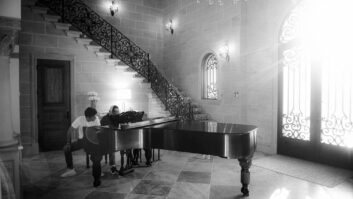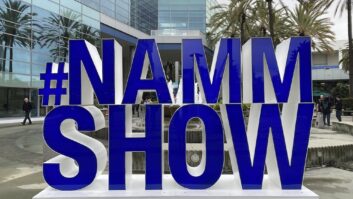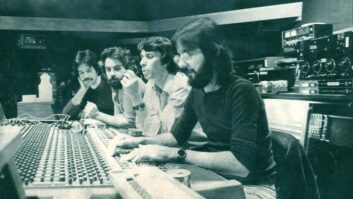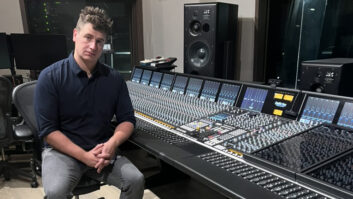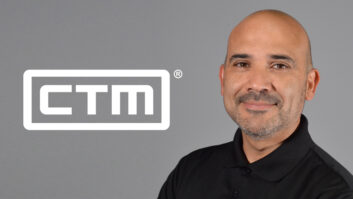It was 25 years ago that four guys from Garfield High School in East L.A.-David Hidalgo, Cesar Rosas, Louie Perez and Conrad Lozano-formed Los Lobos. Though they began as a rockin’ garage band, they quickly took on a new mission: to revitalize Mexican and Chicano folk music for a new generation. And they certainly succeeded on a local level. By the end of the ’70s, though, they had plugged in again and were writing their own songs in both English and Spanish, and they’d also tapped into other roots-old R&B and country flavors, and rock ‘n’ roll. In 1982 they were signed to the new wave indie label Slash, and the following year they put out an EP, …And a Time to Dance, co-produced by T-Bone Burnett and sax player Steve Berlin (who joined the band and remains a member). Since that auspicious release, the group has toured almost nonstop and made a series of excellent albums that have showcased the band’s incredible stylistic diversity and an ever-maturing artistic vision. It’s a band that’s impossible to classify, yet they have their own distinctive sound. In Hidalgo and Rosas, Los Lobos boasts two exceptional guitarists, singers and songwriters, and the band as a whole has few equals when it comes to soulful playing in almost any style.
On the band’s past two albums, Kiko and Colossal Head, Los Lobos have taken their sound in some adventurous new directions. The dominant songwriting team of Hidalgo and Perez has increasingly moved away from simple roots-rock into more complex structures and thematic areas. And sonically, producer Mitchell Froom and engineer Tchad Blake have taken the group further from the mainstream, for better or worse. The unusual instrumentation and effected vocals that are Froom and Blake’s stock-in-trade work well with Los Lobos, but their record sales have gone down and there are some fans who feel that the records have strayed too far from the group’s original sound.
Which brings us to Cesar Rosas’ debut solo album on the Ryko label, Soul Disguise. Rosas-he of the cool goatee, the omnipresent shades and the rumbling guitar-is quick to agree that his CD does mark a return to the earthier, more straight-ahead style of the first Los Lobos albums. “It’s just fun music,” he says. “It’s a roots kind of record, kind of bluesy in places. There’s no social comment or any political things attached to the music. I didn’t get too modern with it. I just wanted to have a good time with it.”
Rosas says that he first entertained the notion of making a solo record several years ago, around the time Hidalgo, Perez, Froom and Blake cut the first of their two strange and offbeat Latin Playboys CDs. But he couldn’t find the time to get the project off the ground until more recently. The Latin Playboys benefited from having a production team actually in the band, but Rosas decided that for his project he would go it alone, engineering the record himself at his L.A.-area home studio and playing most of the instruments. Some of the songs on Soul Disguise are tunes Rosas originally intended for Los Lobos albums, but most were developed specifically for the new disc.
“We’ve been around the music business so long, and I’ve always been interested in recording,” Rosas says when asked how he acquired his engineering chops. “Even in the early days of Los Lobos, in the ’70s, I had a 4-track and a few mics, and I’ve always had something going on with tape recorders. I picked up a lot through the years, too, just making the Los Lobos records. You’re in the studio hour after hour and you learn about mics and where to put them; which is best on a kick and a hi-hat and all that.”
And then there’s Tchad Blake who throws out the rule book, I interrupt. “Right!” Rosas says with a laugh. “You go in with Tchad and he’ll mike a hi-hat with some little cheapie mic, put it in a little cheapie tube amp, put the mic in the corner facing away from the amp…”
Rosas built his home studio in his four-car garage. “It’s nothing fancy,” he says. “It’s a small 16-channel ADAT studio with a handful of old mics. I have a Mackie 32*8, but I don’t use it much to track. I have some old outboard tube pre’s, and so usually I go directly to the ADAT. I have Siemens D72s and a pair of Neves. I have some APIs and a couple of Manley tube pre’s.” His personal mic collection includes a U47, a U87, various AKG models and others. The studio has a pair of iso booths, one for drums and another to house amplifiers.
Because of his demanding touring schedule, the album was constructed piecemeal over a long period. “Most of the tracks started with just a drummer-Victor Busetti, who’s the percussionist for Los Lobos-and myself,” Rosas says. “It was usually electric guitar and a vocal track and drums. We’d go over it a couple of times until we found what we were looking for. I’d keep it and maybe move on, do a couple of songs on that session. Then a month or two later, I’d do the same thing again with a couple more songs. Once we had that base to work from, I started adding bass and guitars and bringing in people to play things. It took me a couple of years to do it that way.”
Wasn’t it difficult to stay focused on the material over such an extended period? “Not really, no. I didn’t have any choice but to work on it in pieces. It allowed me to really take my time. And I’m very comfortable in my studio, so I didn’t get tired of working on it the way you might if you were going down to a regular studio every day for weeks.”
In addition to Busetti, guests on the CD include friends such as drummer Aaron Ballesteros, accordion legend Flaco Jiminez (who was, with Rosas and Hidalgo, part of the recent Los Super Seven project), sax player Jack Freeman, and B-3 players Eddie Baytos and Rosas’ brother Rudy. “Rudy would come over for a family get-together, like for Thanksgiving or something-a family reunion-and people would be outside barbecuing and we’d be in my studio tracking,” Rosas laughs.
Rosas says he went out of his way to come up with different guitar textures for the CD’s 12 tunes, which range from the emotional ballad “Better Way” (one of four songs co-written by Rosas and Leroy Preston, one-time member of Asleep at the Wheel) to the rough-and-tumble R&B of Ike Turner’s rarely covered “You Got to Lose,” the aptly titled “Shack and Shambles” and the Hendrix-influenced title track. “I played so many guitars I can’t even remember some of ’em,” he comments. “‘Soul Disguise’ was inspired by Jimi. That was a Strat straight into a 100-watt [amp] cranked all the way, full-blast. Then we put a flange on it during the mix.”
Though Hendrix is one of Rosas’ obvious heroes, he says he was also influenced by dozens of other famous and obscure blues and R&B guitarists. And then there’s his extremely talented bandmate, David Hidalgo: “Dave has been a great influence on me. I don’t get a chance to say that too often. People always want to know about other influences-Hendrix and whoever-but David was already an accomplished guitarist when I wasn’t playing guitar myself back when we were kids. He was already in bands when I was still riding my bicycle everywhere. And, obviously, we’ve been playing together all this time so he’s had a tremendous influence on me. He’s a great player.”
Soul Disguise was mixed on an API console at the Sound Factory in Hollywood by Rosas and longtime Los Lobos associate John Paterno. “We went for a regular kind of sound where the instruments sound like the instruments; nothing too unusual, no tricks or anything,” Rosas says. When I gingerly ask if the simple approach so evident on the disc is a reaction to the sound of recent Los Lobos records, he chuckles and says, “I had a feeling someone would ask me that question! That sound-this music that’s on Soul Disguise-is just instinctively mine, and if I had to say something about it, I’d say, ‘That’s me.’ God knows what kind of music I’ll be doing as ‘me’ down the road, but this is ‘me’ right now. This is where I’m most comfortable, that style of music-more bluesy. Perhaps it’s something that wouldn’t have a chance in the way [Los Lobos is] recording these days and I kind of miss that vibe. But that’s not to say I don’t totally dig what we’re doing in Los Lobos, because I do. I’m comfortable in both worlds.”
When we spoke in January, Rosas was just beginning to assemble a band for a winter/spring tour to promote Soul Disguise. As always, there were Los Lobos gigs looming, too, as well as a new Los Lobos record due in May. That band remains Rosas’ priority, but Soul Disguise marks a wonderful detour in a career that’s been filled with fascinating musical destinations.
